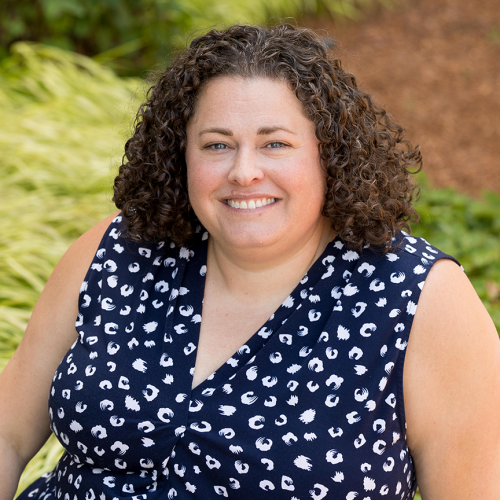Experiential Education Guarantee
A commitment that 100% of students who graduate from Stonehill will have had at least one practical hands-on experience designed to strengthen career prospects, improve career satisfaction and increase salaries.

The Experiential Education Guarantee (EEG) is a commitment made both by Stonehill and its students.
Stonehill commits to providing access to experiential learning opportunities that align with every student’s professional goals. Student commit to completing at least one EEG opportunity prior to graduating.
The EEG program was created in recognition of the fact that students who engage in hands-on learning experiences as undergraduates have greater success when launching careers, report higher career satisfaction and often earn higher starting salaries.
College-Sponsored Experiences
Students can select a college-sponsored experience from one of 6 categories:
Creative Expression
- Music Program Ensemble
- Stonehill Chapel Choir
- Theatre production: actor
- Theatre production: stage management
Community Engagement
- H.O.P.E. Service Immersion Program
- L.I.G.H.T. Community Engagement Program
Leadership
- Orientation Leader
- Advocates for a Brighter Stonehill
Professional Experience
- Externships
- Internships & co-ops for academic credit
- Model U.N.
- Mock Trial
- Skyhawk Squad
- Super Bowl Experience
Research
- Historic Archaeological Field School
- Stonehill Undergraduate Research Experience (SURE)
Travel Study
- Study abroad
- Travel seminars
- International Internships: Dublin, Madrid, Prague
Independent Experiences
Students can also submit for approval of an independent experience with approval from the Experiential Education Committee.
Student Testimonials
“All these experiences taught me leadership skills and allowed me to become more immersed in my college community.”
“With the Super Bowl experience, I now recognize my potential in this space. I recognized that I belong in those rooms.”
“What I didn’t anticipate is how much my experiences over four years at Stonehill would prepare me to go to law school — and to become a successful lawyer.”
Core Principle Approach
At Stonehill, five core principles shape our approach to experiential learning. To earn credit for an experience, students must fulfill all five:
Intention: Purposefulness transforms experience into knowledge. More than just setting goals or objectives, students must establish their intent before beginning their experiential education.
Commitment: The experience represents a significant investment of time and effort by students over an extended period of time. At Stonehill, we require a 50-hour commitment over a minimum of seven weeks for the experience.
Application: Experiences must take place outside of our traditional educational contexts where students apply their knowledge, make meaningful connections, and gain practical insights.
Reflection: Reflection is the element that transforms simple experience to a learning experience. From setting an intention to evaluating personal growth, students engage in reflection throughout the process. Those pursuing a college-sponsored experience will reflect with their facilitators. Those who pursue independent experiences will demonstrate their reflective process prior to approval.
Mission Alignment: Each experience must reflect Stonehill’s commitment to cultivating the whole person. Experiences should encourage students to contribute to a more just and compassionate world and to recognize the inherent dignity of all people.
Real Experience, Real Results
The National Association of Colleges and Employers conducted a national survey of recent graduates to better understand the benefits of experiential learning, including internships, externships, apprenticeships, co-ops, study abroad, faculty-led research projects, on-campus student work, practicum (or clinical) experiences, and micro-internships.
According to the National Association of Colleges and Employers, 81.3% of students who participated in experiential learning reported satisfaction with their careers, compared to 72.6% of those who did not.
Data from the National Association of Colleges and Employers shows that 41.3% of experiential learners have a mentor early in their careers, compared to just 23.9% of nonexperiential learners.
According to the National Association of Colleges and Employers, 69.1% of students with experiential learning backgrounds report positive career progression, compared to 55.1% of those without such experiences.
The National Association of Colleges and Employers reports that experiential learners earn an average early-career salary of $59,059, significantly higher than the $44,048 average for nonexperiential learners.
